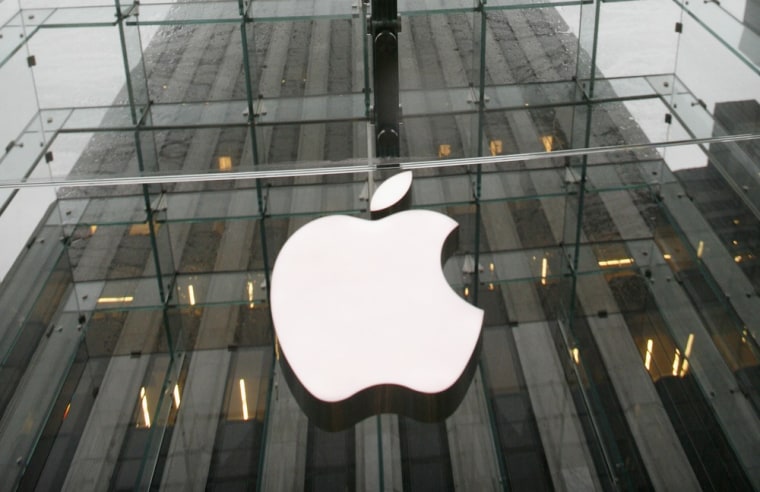In rating shares of Apple, analyst Brian J. White of Ticonderoga Securities could justifiably be unnerved by the example of Microsoft at the end of 1999 as the tech boom neared its peak. The software giant was then the world’s biggest technology outfit by market value: $607 billion, still the record for any company. Then came the tech crash. Since the turn of the decade, Microsoft has lost more than half its value.
These days, Apple is worth about $375 billion, with shares up about 25 percent, to $403, this year. If the stock gains an additional 12 percent, Apple will have the world’s largest market value, surpassing ExxonMobil. Yet White isn’t worried about Apple’s abruptly coming down to earth. If anything, he and a handful of other analysts think Apple watchers on Wall Street may be substantially underestimating the potential of the company, which still only has a single-digit market share in mobile phones and personal computers. “I don’t remember a company of this size growing at this pace,” says White, who recommends the stock and predicts it could be worth $617 billion within a year — the Street’s highest target. “We can’t even model out some of the possibilities: an Apple TV set, huge growth in China, businesses racing to buy Apple laptops. It’s like a religion. It sounds crazy, but it could still be early for Apple.”
Wall Street has had trouble getting a read on the prospects of the Cupertino, Calif., tech wonder for some time. In fairness, Apple’s management is notorious for lowballing financial projections. Even so, Apple’s profit has topped analysts’ average forecasts for 25 straight quarters, according to Bloomberg data.
Throughout this period, while Apple shares have soared higher, they’ve become cheaper in relation to earnings. That’s because Apple’s profit, seemingly defying the law of large numbers, keeps growing faster than the share price. Apple hasn’t so much “beat the Street” as humiliated it. “There’s simply never been another large company growing at this rate,” says Eric M. Jackson, managing member of Ironfire Capital, a hedge fund in Naples, Fla., that owns Apple shares. “We look at today’s stocks through the lenses and biases of our past.”
Doubling profit
Apple, he says, is unique. It is on pace to report revenue of more than $100 billion this year — roughly what Microsoft and Intel take in combined. Profit is expected nearly to double, to $27 billion. The company is also throwing off greater amounts of cash — its $76 billion kitty could buy Hewlett-Packard or a combination of Netflix and EBay. Jackson says that when Apple hit a $250 billion valuation, hedge fund managers and analysts warned him that this was the upper limit. A few months later, Apple was worth $300 billion, and now $375 billion. Jackson sees Steve Jobs & Co. expanding into mobile payments, perhaps by buying a credit-card company outright.
And so widens the disconnect: Apple just had its best quarter ever, posting sales of $28.57 billion, compared with Wall Street’s consensus view of $25 billion, with earnings per share of $7.79, fully a third higher than expectations. The 20 million iPhones the company sold topped predictions of 17 million.
Even as Apple’s stock jumped in reaction, adding $25 billion in market value, its price-earnings ratio didn’t. White, of New York-based Ticonderoga, calculates that Apple, excluding cash, changes hands for 10 times expected 2011 earnings, compared with the Standard & Poor’s 500-stock index’s p-e of 14 (even as Apple is boosting earnings at six times the rate of the broader market). At the same time, Apple sports a decade-low p-e on the next 12 months’ earnings.
Apple skeptics — yes, they exist — see challenges ahead. Apple’s revenue opportunity in China, with its projected 125 million high-end smartphone subscribers, could be worth $70 billion, says White. Right now it’s kicking in only about $4 billion a quarter. While Jackson and White believe that sum will multiply, Libin Lu, an analyst who covers Apple for Analysys International in Beijing, isn’t convinced. “The ecosystem of Apple is a highly closed one,” he says, contrasting it with Google‘s open Android mobile operating system, which now has the highest growth rate in the world and is gaining ground in China. “If they’re still the same way in two or three years from now in China, Apple will not win.”
Stingy with cash
Other investors protest Apple’s stinginess with its cash hoard, which works out to about $81 per share. The company has yet to return any of it to shareholders or use it to make a major acquisition. “I would not buy Apple for clients, but not because of market cap or valuation,” says Jenny Van Leeuwen Harrington, chief executive officer of Gilman Hill Asset Management in Westport, Conn. “They can and should be paying a dividend.”
Apple optimists remain undeterred. If Apple keeps it up, the company will soon have a shot at breaking Microsoft’s record tech company valuation. Then, says White, $1 trillion isn’t so absurd. “Why not?” he says. “Apple is an industry, not a company.”
The bottom line: Apple’s expected doubling of profit and its share performance have cast an unflattering light on Wall Street’s projections for the company.
